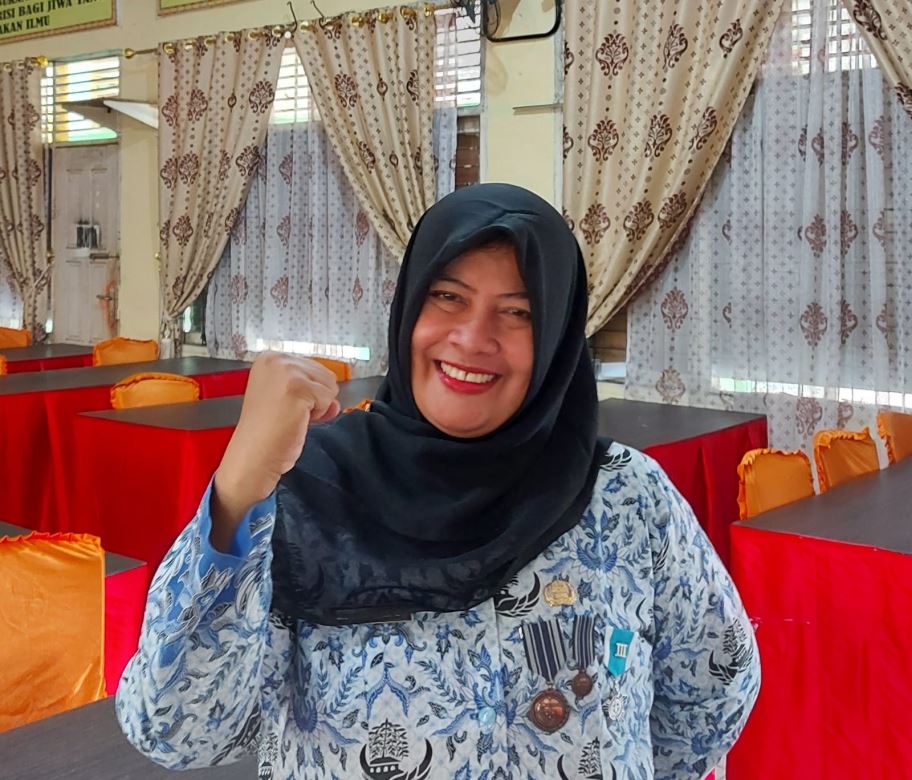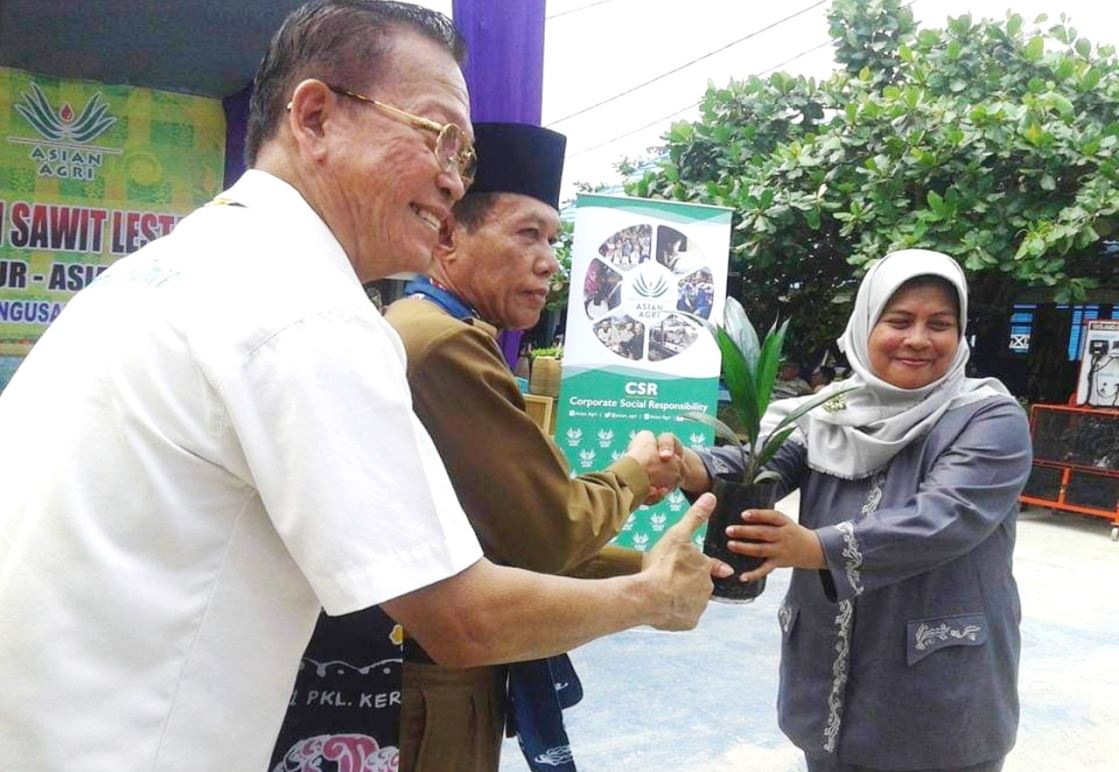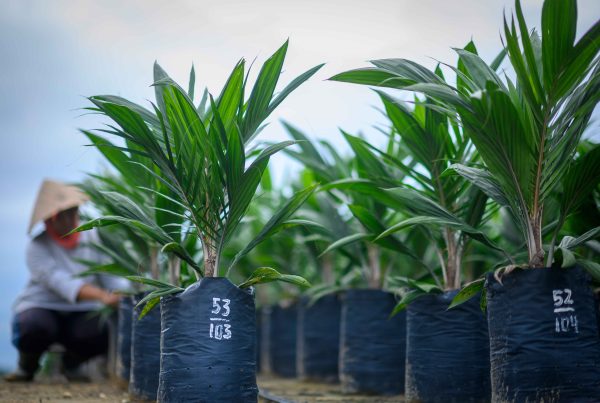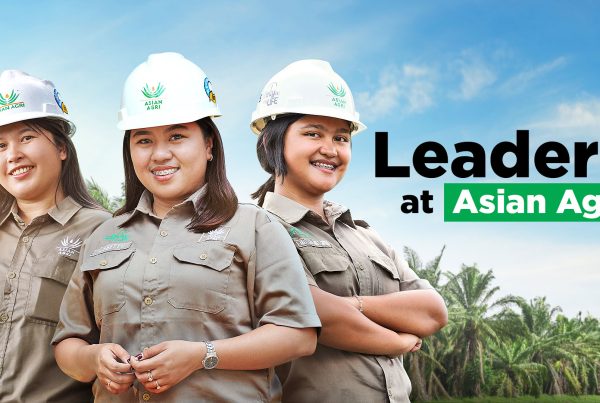Many think that the teacher’s job is only to teach. In fact, it’s also important to teach life skills.
This was stated by Nurasia, Principal of SMK 1 Pangkalan Kerinci, Riau Province, one of Asian Agri’s school partners which has been part of the Sekolah Sawit Lestari program since 2016.
Sekolah Sawit Lestari sees schools near plantations partner with Asian Agri to teach sustainable oil palm farming. “The plantation agribusiness major is one of the favorites at SMK 1 Pangkalan Kerinci,” said Nurasia.
“Our school is surrounded by oil palm plantations, so many students are also children of smallholders or local residents whose lives depend on oil palm. The combination of theory and direct practice in the field are really needed.”
Twice a week, Asian Agri’s team visits SMK 1 Pangkalan Kerinci to provide motivation and teaching both in the classroom and in the field.

The teachers are also trained on sustainable palm oil so that they can assist students in learning.
According to Nurasia, teaching during the pandemic has been very challenging, especially for the vocational students.
“Since the Covid-19 pandemic hit Indonesia, the challenge has been very heavy, because all teaching and learning activities are carried out online, whereas as a vocational school we need practical learning in the field,” she said.

In addition not all students have mobile phones, and connection can be poor in more remote areas, making online learning a challenge.
The school has implemented a hybrid program, with a small number of pupils in class, following strict health protocols, while the rest join online.
“My parents are also teachers, so I’m used to seeing them teach,” said Nurasia. “You could say that being a teacher was my dream.”
After graduating from the University of Riau, Nurasia was placed at the Open Middle School in the Kampar area, Riau, for around five years.
“In the past, to get to the place of teaching I had to travel about 50km with a bad roads and no public transport. Likewise with the students, they were mostly unskilled workers such as rubber collectors who had to work to help the family’s economy so school is not their main focus, which makes them rarely attend classes.”
According to her, the challenge of being a teacher at that time was to understand the circumstances of the students and the surrounding environment. “How to make them motivated to go to school regularly and enjoy learning was a challenge at that time.”
Then in 2004, she decided to continue her education with a Master’s at Indonesian Education University (UPI) Bandung, West Java. After graduating, Nurasia returned to teaching in Riau, this time she was placed at SMA 2 (Senior High School) Pangkalan Kerinci. But in less than a year, she was transferred to SMK 1 Pangkalan Kerinci, and eventually became the principal in 2012.



